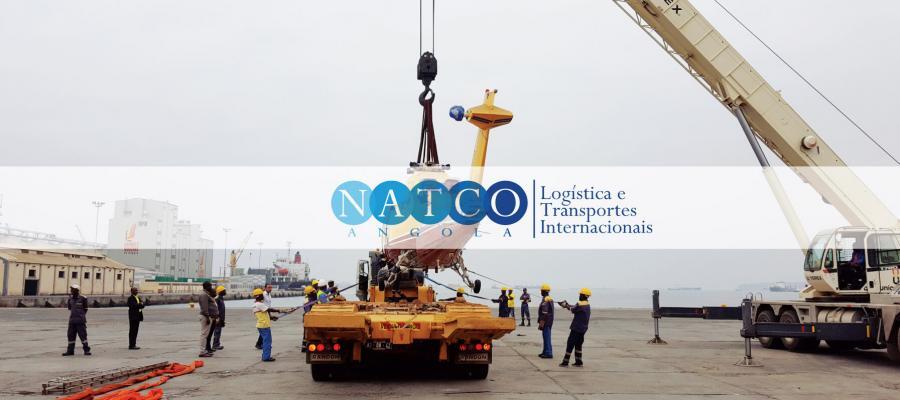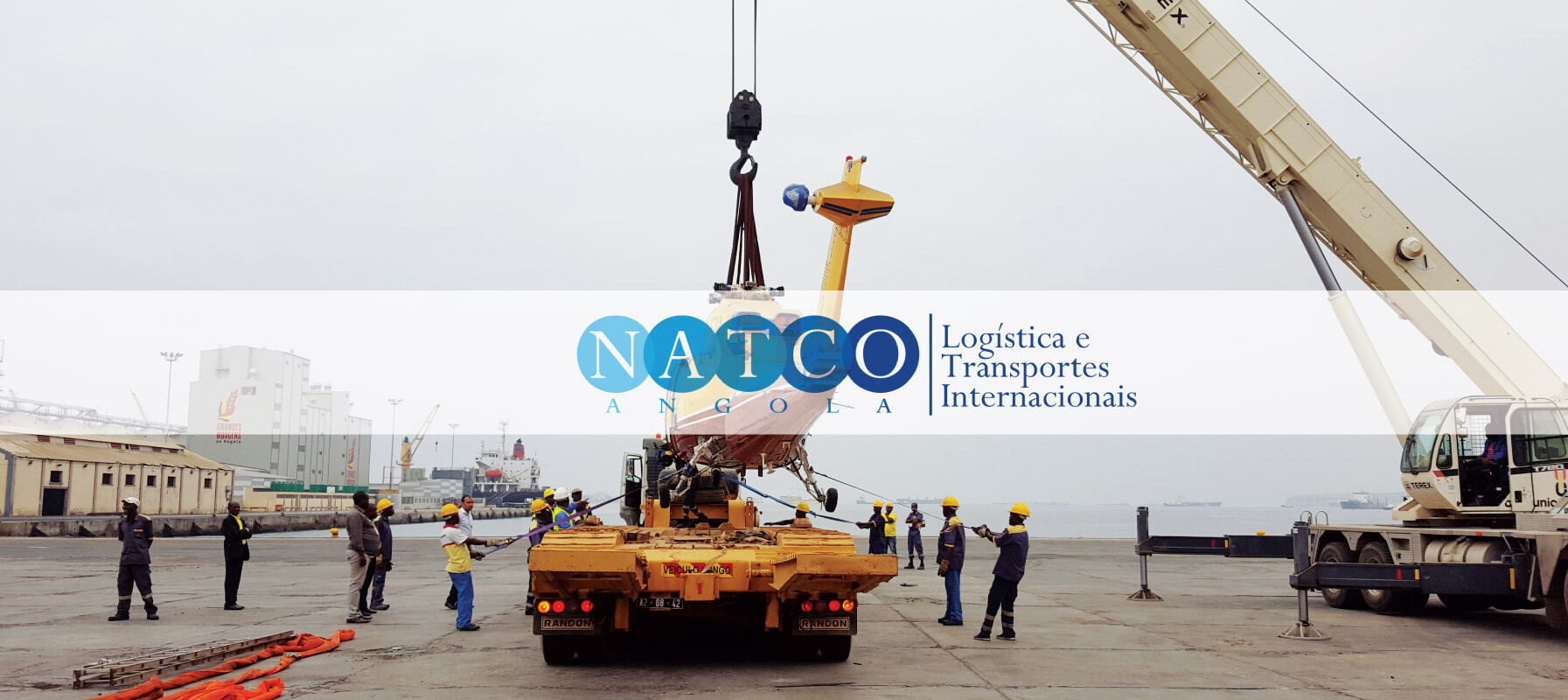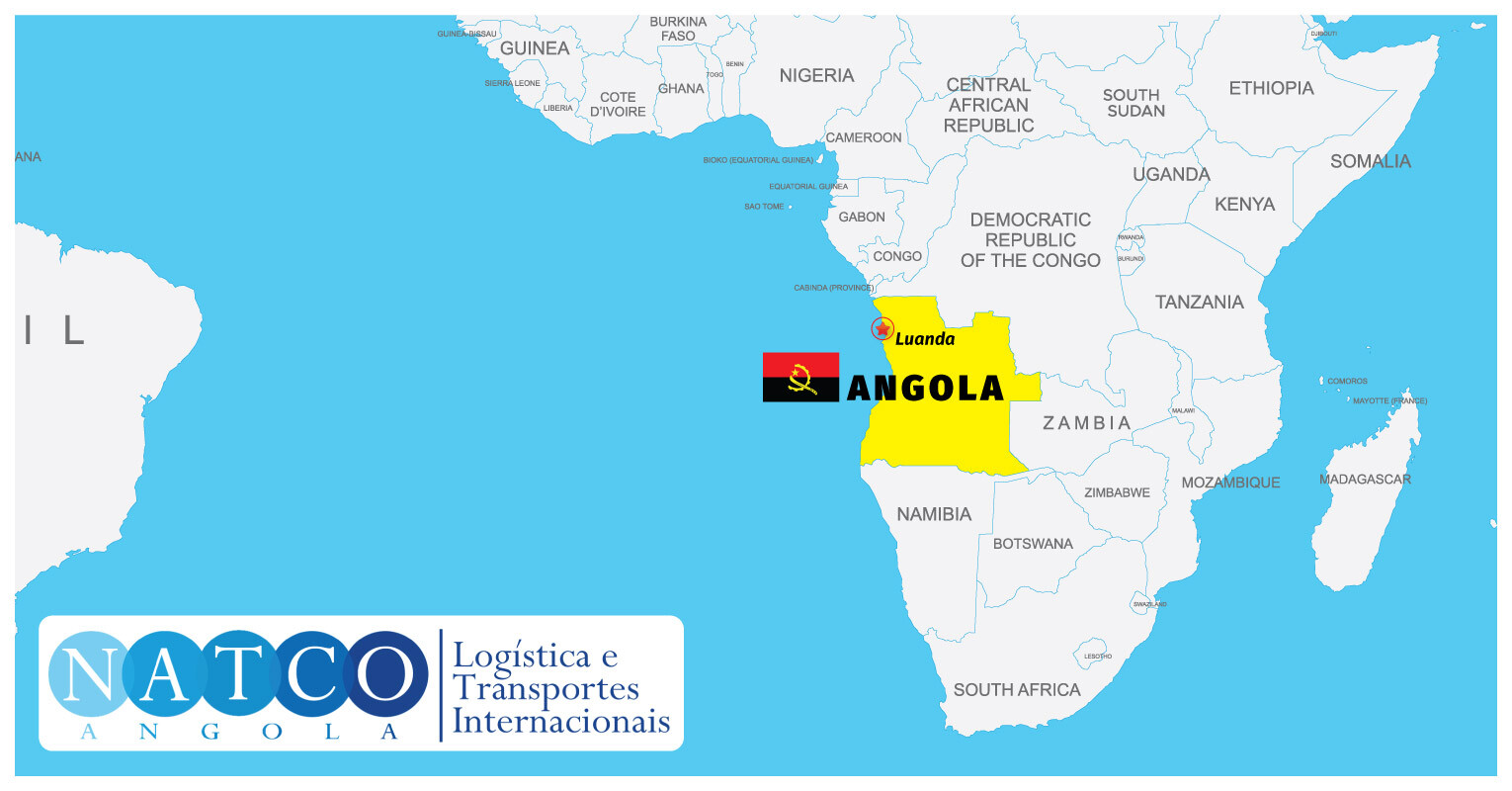Interview with
Mr. Carlos Magalhaes
CEO

First off, Carlos, can you elaborate a bit on the history of NATCO in Angola? How long have you been active in this mineral-rich country, and what is your set-up locally right now?
Natco Lda is an Angolan company based in Luanda. Founded in 2003, we started in the beginning deeply committed to the supply business of the Transorga Group, providing logistics services to the mining industry dealing mainly with the import customs brokerage, trucking and delivery of all the machineries and spare parts to mining projects.
At this moment in time, the company was part of the Natco Group Freight Forwarders which was established successively in the 80’s and 90’s with subsidiaries in Europe, the Middle East, the Americas, and Asia. Using that as leverage, the company has gained experience and extensive knowledge in the field of diversified transportation logistics and support as well as customs clearance in Angola over the last decades.
From there, we developed relationships in our country, gaining customers, acting as an independent provider of international logistics in the service of any client, locally and internationally, having evolved into a company mainly oriented to providing services in Angola. Today, we are part of ILS International Group.
What is your main line of logistics business when it comes to Angola? Can you also do transshipment from Angola to neighbouring countries? What about customs clearance—is that a headache in Angola or can you provide a few golden tips to our readers?
Since Angola is a country with no or limited industries, there’s only residual exportation. All forwarders are dedicated to the importation and logistics within Angola. In our case, sea and air cargoes are our main business.
Customs clearance, well this is the historical headache to African forwards, but fortunately we can state that this has improved much over the last years. Nowadays, customs clearance is running smoother than ever, compared of course with the past. Of course, there are still ongoing improvements. The current bottlenecks are mainly with government licenses when these are required.
Like in all businesses, the secret is planning. For Angola, planning and preparation is a must. We advise all to plan ahead not only due to paperwork that still involves any importation but also the deadlines that importers still demand regarding delivery dates of their cargoes delivered. All the world has changed due to Covid-19. You can imagine the impact this had on flights and vessels heading to Angola.
The Golden Tip for the Angolan market could be: It is best to have a local Agent, familiar with the local Angola government demands, which are constantly changing and should be updated to avoid delays and headaches.
How is Angola developed concerning ports? Which ports are the major ones for project cargo, etc.? What kind of crane capacity would you have available in the main ports?
We are aware of new projects concerning the new seaports for Luanda and Cabinda. When they are running in the future, facilities should be very good.
The main port to receive project cargoes is still Luanda, mainly due for several reasons. The majority of port calls are done via Luanda depending on port capability, draft limitations, project location and road conditions.
Port Call – Commercial lines call mainly at Luanda and from there, serve the remaining port with feeders.
Port Capability – We need to exclude straight away Cabinda and Lobito, leaving Soyo, Luanda and Namibe. If we go for Soyo, this has been developed because of the LNG project but then, onforwarding could be a nightmare because Soyo is located in the very north of Angola, Namibe is the opposite—located very South, leaving Luanda in the center with the best infrastructure, machinery, and roads that can serve the all country.
Is the country stable politically at the moment, and “who” is currently head of government there? What kind of commodities are the main import and export items?
In our opinion, yes, Angola is a politically stable country. The MPLA has been in power since 1975.
Angola imports machinery and electrical equipment; vehicles and spare parts; medicines, food, textiles, and military goods. Portugal is the main supplier of the Angolan economy (18% of total imports) followed by China, United States, Brazil, and South Africa.
On the other hand, exports from Angola are mostly crude oil (more than 90% of total exports) and small quantities of diamonds, coffee, sisal and fish. Angola’s main export partners are China (more than 40% of total exports), followed by the United States, India, France, Taiwan, South Africa, and Canada.
I understand that you are supported by the Swiss-based ILS group. Can you tell us a bit more about that?
ILS – International Logistics & Services AG is an international, freight forwarding and logistics provider with a diversified and flexible service portfolio. It is a Swiss-based company created to support the demand to Angola, where flexibility, fast reaction, reliability and a large experience in transportation & freight forwarding business are some of the key factors for our success.
We put high importance on operational excellence and cost-effectiveness in our daily work to provide our clients with advantageous solutions and added value. ILS Group does have particular emphasis on the African continent with its huge growth potential and can rely on a profound know-how as a logistic partner within the oil, gas, mining, and heavy industry sector.
ILS AG and Natco Angola provide the high standard service our Angolan Customer is expecting with flow communication from loading area up to its final destination. Therefore, through these combined services between our two companies, our customers are given optimized and customized logistics solutions from one single source, minimizing all doubt they could have in the whole import procedure. Natco also has our own, in-house, custom’s broker.
Our group companies comprise transport logistics, warehousing and customer specific services for full supply chain management. We are focused on individual and customized customer service, which is based on their unique business requirements. Our service package allows each customer to have one contact point even though they are receiving a holistic supply chain solution, for each shipment handled by our team.
Could you perhaps provide our readers with some examples of cargoes you have handled to/from Angola or ships you have looked after in port?


Aircraft Spare Parts – AOG for TAAG Airlines (Engines & Landing Gear)


Brewery factory –DAP from Luanda port to Bom Jesus




Yogurt factory –DDP from Lobito port to Catumbela




Heavy machinery –DDP from Luanda port to the mine location




Helicopters from factory up to client and returns
Are there many shipowners calling at Angola directly nowadays, and again, from a political point of view, who are the major “powers or countries” that are active in Angola now?
Presently, all major Carriers are calling on a regular basis to Luanda and some also call at Lobito and Namibe ports, such as CMA-CGM, Maersk, MSC, Happag-LLoyd, Grimaldi, UAL, etc. All them are connecting Main European Ports and North & South American Ports to Angola.
From the Far & Middle-East, we can count on the support of Maersk, MSC, Hoegh-Lines, MOL, OCCL, etc.
Definitely, a major market is ex Europe. and Belgium and Portugal are the main provided countries. This is the reason we recently opened ILS Portugal.
I remember some years ago the capital, Luanda was the most expensive on the McDonalds Hamburger price index worldwide. How about now?
I remember those days! Well definitely, since the oil prices used in those days are gone, Angola is passing through a serious financial crisis. All sectors of our economy have been trying to adjust themselves to this new reality for the past few years, which is of course a very difficult mountain to climb.
In a nutshell, a lack of foreign currency and a strangled economy lead to serious adjustments in revenues, cutting costs in personal and benefits, especially for expats. There has also been huge inflation and tremendous losses for the companies with parity. This all led to today’s reality: low salaries, realistic house prices, and with the kwanza’s tremendous devaluation [Ed. Note: the Kwanze is Angola’s current currency], the prices today are really cheap.
Please tell our readers how best to reach you?
Carlos Magalhaes
magalhaes@interlogserv.com
magalhaes@natco.co.ao
Myself and all our support team can be easily reached through the CLC Projects networks and also visiting our web pages
NATCO ANGOLA www.natco.co.ao
ILS – AG Swiss www.interlogserv.com




